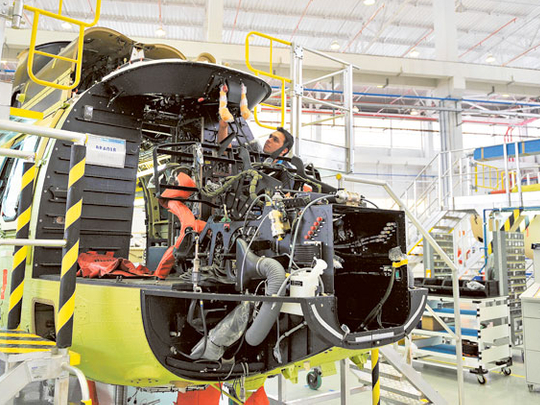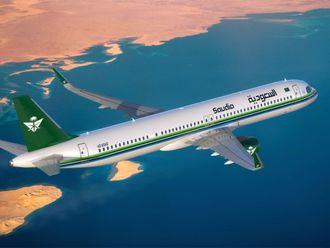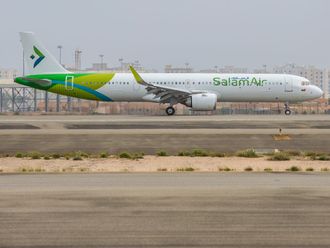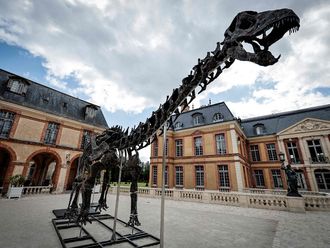
Paris: In effectively scuttling the planned merger between European Aeronautic, Defence & Space Co and BAE Systems Plc, Germany demonstrated the road to European integration runs through Berlin.
As Chancellor Angela Merkel’s government has shown in almost three years of managing the euro-area financial crisis, the interests of German taxpayers trump strategic designs — even in defence, where German spending is about half of Britain’s as a share of its economy.
“It highlights a lack of ‘smart politics’, which is a key condition for ‘smart defence,’” said Henrik Heidenkamp, a German research fellow at the Royal United Services Institute, a London-based independent security-research group. “Politicians, at least in Germany, do not perceive their European defence industrial base as a strategic element of their security and defence posture but first and foremost as a subject of national economic influence.”
France and Britain were unable to overcome German concerns about being marginalised in the merged company whose operations would have been run out of Toulouse, France, and London, shutting out Munich, people familiar with the matter said. After the companies abandoned the talks on Wednesday, BAE Chief Executive Officer Ian King said there was more “understanding” with France than Germany.
Letter to employees
In a letter to employees, EADS’ chief executive Tom Enders, a German, said he “never expected to find such opposition against the deal, in particular not in Berlin.” He applauded “strong efforts” by the French and UK governments to reach agreement.
German Deputy Economy Minister Peter Hintze said the failure of the talks between EADS and BAE were in Germany’s interest, Spiegel magazine reported.
“I think that Germany’s industrial interests are best protected in this form of having a strong production chain from research, development to industrial production,” Hintze was quoted by Spiegel as saying. A ministry spokesman declined to comment on the report.
Two German officials asking not to be named pushed back at assertions that Berlin torpedoed the deal. The UK rejected France’s demand to keep open an option to increase its stake above 9 per cent, they said. Germany was open to the option, as long as it maintained parity with France, they said.
EADS shares climbed 0.5 per cent to €27.62 at 9.14am in Paris, extending Wednesday’s 5.3 per cent gain. BAE rose 0.5 per cent to 322.5 pence after falling 1.4 per cent on Wednesday.
Germany is the European Union’s most populous country and its largest economy. On military matters, it lags nuclear-armed Britain and France, in both conventional hardware and force projection. France and Britain led Nato’s 2011 air campaign to overthrow Muammar Gaddafi in Libya. Germany sat it out.
“This sad failure shows you how much national rivalries still account for in Europe,” said Philippe Moreau-Defarges, a researcher at the Paris-based French Institute of International Affairs. “But it’s also a clash between an Anglo-French outlook that is more open to the world, and a German view that is more turned inward to the continent.”
According to the Stockholm International Peace Research Institute, Germany spent $43.5 billion or 1.4 per cent of its economy on its military in 2011. The UK and France each spent $58 billion. That amounted to 2.3 per cent of the French economy and 2.6 per cent of Britain’s.
European malaise
“The entire malaise of European foreign policy is encapsulated in this decision,” said Jan Techau, director of the European Centre of the Carnegie Endowment for International Peace in Brussels and former researcher at the Nato Defence College in Rome.
The two companies had offered the governments special shares that gave them some veto rights. France, which owns a 15 per cent direct stake in EADS, would have kept a holding of about 9 per cent. Germany was granted permission for an equal stake, even as Enders sought to limit state involvement.
Just as the companies were announcing the collapse of their talks, French President Francois Hollande and Spanish Prime Minister Mariano Rajoy were complaining about what they saw as German foot dragging on another issue — bank regulation.
They were asked about attempts by German Finance Minister Wolfgang Schaeuble to keep Germany’s regional banks out of the control of the prospective supervisor under the European Central Bank.
“The regulator must be credible, and to be credible it must have a wide field to cover,” Hollande said — “even modest banks.”












